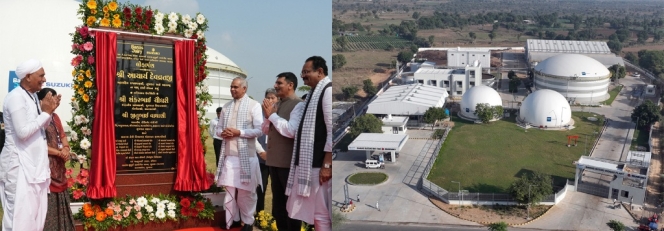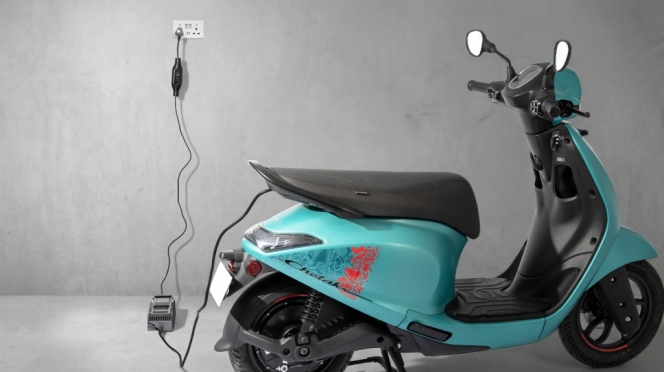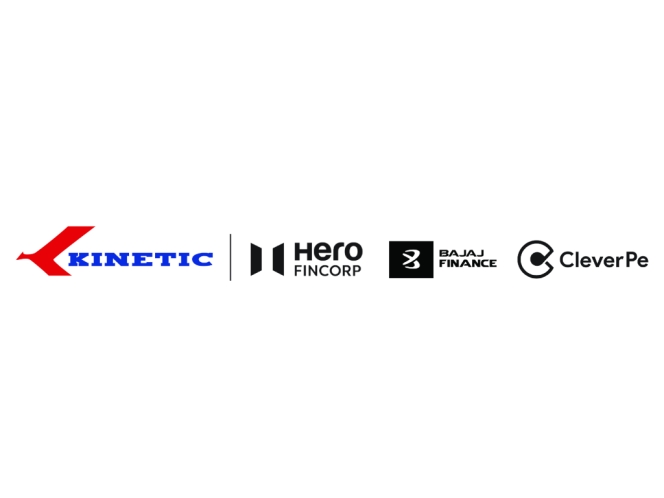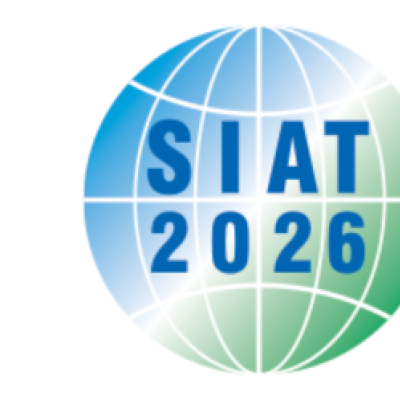Rare Earth Metal Demand In India To Reach USD 62 Million By 2030: Report
- By MT Bureau
- June 30, 2025

India is embarking on an ambitious journey to become a dominant force in the global rare earth metals (REMs) market, with a significant seven-year initiative (2025-2032) aimed at bolstering its domestic mining, refining and magnet production capabilities. This strategic pivot comes as the world increasingly relies on these 17 chemical elements, which include the 15 lanthanides along with scandium and yttrium, for cutting-edge technologies that drive electric vehicles (EVs), wind turbines, smartphones and defence systems.
A recent report by Coherent Market Insights stated that despite possessing the world's fifth-largest rare earth element reserves, estimated at an impressive 6.9 million metric tonnes, India has historically been heavily reliant on imports of rare earth magnets. However, the landscape is rapidly changing. The Indian rare earth market, valued at approximately USD 40 million in 2024, is projected to soar to USD 62.0 million by 2030, growing at a compound annual growth rate (CAGR) of around 8 percent starting in 2025.
A key aspect of this initiative involves IREL (India) Ltd., a public sector enterprise, which is increasing its neodymium output. Additionally, new magnet manufacturing plants are being established in Visakhapatnam and other industrial centres. To further secure its supply chain, India has temporarily paused some exports to prioritise domestic needs and has announced significant public-private partnerships for advanced processing facilities. The nation is also actively forging international partnerships with countries in Africa and Central Asia to secure upstream supplies.
This move by India is particularly pertinent given the global concentration of rare earth supply. As of 2023, China is the dominant player, responsible for a staggering 65-69% of total rare earth output and nearly 90 percent of the world's rare earth element processing. China's recent export restrictions on gallium and germanium in 2023, in response to chip sanctions, underscored its willingness to leverage critical mineral supply chains for geopolitical influence. Such actions have accelerated efforts by the U.S., EU, and Japan to diversify their sources.
The global market for rare earth metals is projected to be worth nearly USD 6 billion by 2025, with an anticipated CAGR of 6.4 percent from 2025 to 2032, ultimately reaching around USD 9.3 billion. This growth is primarily fuelled by the shift towards clean energy and the surging demand in the electronics and EV sectors. Neodymium, a key component in permanent magnets used for EV motors and wind turbines, stands out as the most commonly used rare earth metal, holding about 38.1 percent of the market share in 2025.
India's strong emphasis on supply chain resilience, innovation, and environmental sustainability aims to position it as a key player in the global rare earth materials value chain over the next decade.
Mohit Shrivastava, AVP Research, Coherent Market Insights, said, “Rare earth metals are quickly becoming the backbone of both the clean tech and defence sectors. While China currently holds a strong grip on the supply, India has a unique opportunity to shake things up with its abundant reserves and fresh strategic plans. Transitioning from being a mere importer to an active player in the value chain will depend on enhancing refining capabilities, fostering public-private partnerships and navigating geopolitical challenges. Over the next ten years, if India invests wisely in rare earth metals infrastructure, it could emerge as a key regional processing hub – boosting domestic manufacturing and strengthening global supply chain resilience."
Suzuki Opens Second Biogas Plant In Gujarat
- By MT Bureau
- January 20, 2026

Suzuki Motor Corporation and its subsidiary, Suzuki R&D Centre India (SRDI), have inaugurated the Banas Suzuki Biogas Plant in Bhukhala, Gujarat. The facility, which opened on 18 January 2026, is the second such plant following the Agthala site that commenced operations in December 2025.
The plant is designed to process up to 100 tonnes of cow dung per day to produce approximately 1.5 tonnes of biogas. This output is equivalent to the daily fuel requirements of 850 compressed natural gas (CNG) vehicles. In addition to fuel production, the facility will sell organic fertiliser generated as a byproduct of the process.
The project is part of an agreement signed in September 2023 between SRDI, the National Dairy Development Board (NDDB) and Banas Dairy. The partners have agreed to construct a total of five biogas plants in the region. The Bhukhala site covers an area of 27,000 square metres and forms a component of Suzuki’s strategy to support carbon neutrality in India.
The use of biogas serves as a carbon-neutral alternative for CNG vehicles, which currently represent 20 percent of the Indian passenger car market. Beyond emission reductions, the initiative is intended to improve energy self-sufficiency and increase rural income through the purchase of cattle waste from local farmers.
The opening ceremony was attended by Acharya Devvrat, Governor of Gujarat and Shankar Chaudhary, Chairman of Banas Dairy and Speaker of the Gujarat Legislative Assembly. Representing Suzuki was Kenichiro Toyofuku, Managing Officer and Executive General Manager of Biogas Operations.
The company stated that it will continue to develop its biogas business to contribute to national growth and environmental targets. The operation is expected to create jobs within the district while providing fuel for high-demand vehicle segments.
Bajaj Auto Rolls Out Early Incentive Offer For Chetak C25 E-Scooter
- By MT Bureau
- January 19, 2026

Pune-headquartered two-wheeler and three-wheeler major Bajaj Auto has started sales of its recently introduced Chetak C25 e-scooter across its showrooms in India. Following the model's unveiling earlier this week, the company has positioned the vehicle to target urban commuters. The scooter is priced at INR 91,399 (ex-showroom Delhi), with an introductory benefit of INR 4,299 available for the first 10,000 customers, bringing the effective price to INR 87,100.
The Chetak C25 features a 2.5 kWh battery providing a certified claimed range of 113 km. It is constructed with a metal body and a mono-body design intended for durability in city environments. Technical specifications include a 25-litre storage compartment, disc brakes, hill hold assist, and guide-me-home lighting. The vehicle’s proportions are designed for agility in dense traffic.
The introduction of the C25 completes the Chetak portfolio, which now includes the 30 and 35 Series. Bajaj is marketing the model to first-time electric vehicle buyers and households requiring a secondary scooter for short trips. Deliveries have commenced alongside the showroom roll-out in major cities.
The C25 is supported by the existing Chetak service network. The company noted that the launch and early-bird offer are intended to address customer interest in accessible electric mobility solutions that focus on reliability and ease of use.
The e-scooter maintains the brand's focus on material quality through its use of metal surfaces rather than plastic panels. It is engineered to align with daily commute patterns and offers various colour options. The mechanical framework is built to provide stability and a refined presence on the road while maintaining a compact footprint.
- Indofast Energy
- Nexus Select Malls
- Quick Interchange Stations
- Anant Badjatya
- Nilesh Singh
- Battery Swapping
Indofast Energy Partners Nexus Select Malls To Expand Battery Swapping Stations
- By MT Bureau
- January 19, 2026

Bengaluru-based clean tech company Indofast Energy has partnered Nexus Select Malls to introduce battery swapping stations within shopping mall premises. The initiative has commenced with the inauguration of Quick Interchange Stations (QIS) at Nexus Shantiniketan and Nexus Whitefield in Bengaluru.
This marks the first time such infrastructure has been integrated into the portfolio of India’s first Retail REIT. The partnership is designed to provide energy solutions for commuters, delivery partners and fleet operators by utilising high-footfall retail destinations.
Following the Bengaluru launch, the companies plan to expand the network to other cities, including Delhi NCR, Chandigarh, Hyderabad and Pune. The technology allows users of electric two-wheelers and three-wheelers to replace depleted batteries in minutes, addressing requirements for the last-mile delivery sector.
The swapping stations utilise an automated platform that supports multiple vehicle types. By placing these stations in malls, the companies intend to make electric vehicle (EV) charging as accessible as traditional retail services. The project aligns with broader efforts to embed sustainable mobility into urban infrastructure and reduce the time vehicles spend at stationary charging points.
Anant Badjatya, CEO, Indofast Energy, said, “Our collaboration with Nexus Select Malls represents a paradigm shift in how urban infrastructure can support the rapid adoption of electric vehicles. By integrating our state-of-the-art battery swapping technology directly into high-footfall retail destinations, we are not just providing convenience; we are creating an ecosystem where electric mobility becomes an effortless and integral part of daily life for millions of shoppers and commuters, and especially the thriving last-mile delivery ecosystem. We are incredibly proud to be Nexus Select Malls’ first battery swapping partner and look forward to a successful, rapid expansion across their extensive network. This partnership underscores our commitment to making battery swapping the default choice for urban transportation and accelerating India’s transition to sustainable mobility.”
Nilesh Singh, Senior V-P, ESG & Business Excellence, Nexus Select Malls, added, “As India’s first Retail REIT, Nexus Select Malls is committed to reimagining malls as future-ready urban ecosystems. Introducing battery swapping stations for the first time across our portfolio is a meaningful step in embedding sustainability into everyday consumer spaces. This initiative supports cleaner last-mile mobility while making greener choices visible, accessible and practical for millions of visitors who engage with our malls every day.”
Kinetic Watts & Volts Partners Hero FinCorp, Bajaj Finserv & CleverPe For Retail Finance
- By MT Bureau
- January 19, 2026

Kinetic Watts & Volts, the electric mobility division of the Kinetic Group, has formed a retail finance ecosystem through partnerships with Hero FinCorp, Bajaj Finserv and CleverPe.
The collaborations provide financing solutions for the Kinetic DX and DX+ electric scooter range, utilising traditional lending and digital payment technologies across the company’s dealership network in India.
The partnership combines the reach of established financial institutions with a fintech platform to offer EMI-based lending and digital credit options. This framework is designed to reduce upfront costs and simplify documentation for consumers. The move supports Kinetic’s strategy of market-by-market expansion as the company scales production and registration volumes.
The Kinetic DX range features the Range-X LFP battery architecture, which is engineered for safety and reliability. The scooters are designed to reference the brand's previous petrol models while functioning as modern electric vehicles. By integrating finance options directly at the point of sale, the company aims to address the requirements of urban consumers and first-time buyers.
Kinetic Watts & Volts is currently building its dealership footprint and after-sales infrastructure to support its long-term vision in the electric vehicle sector.
Ajinkya Firodia, Vice-Chairman & Managing Director, Kinetic Watts & Volts, said, “Access to convenient and trusted financing is fundamental to accelerating electric mobility adoption in India. By partnering with Hero FinCorp, Bajaj Finserv and CleverPe, we have built a comprehensive retail finance ecosystem that offers customers flexibility, choice and confidence. These collaborations support our strategy of opening markets one by one, while reinforcing the growing belief of leading financial institutions in Kinetic’s EV products and long-term vision.”







Comments (0)
ADD COMMENT